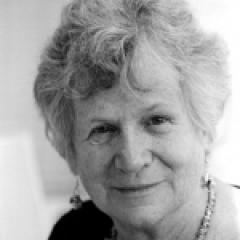Deborah Meier on Education: Privilege
Dear readers,
Change of subject (I’ll be back to teacher-written books ). There are a few interesting things that I have come across and want to comment on.
For example, I re-read two of Seymour Sarason’s books—The Predictable Failure 0f Educational Reform (published in 1990!), and How Schools Might Be Governed and Why (1997). It was rather depressing to do so since in the past 20-25 years we have fallen into every predicted abuse of reform that he feared. It is definitely time to reread him. It is all about who has the power, he reminds us. The power has shifted sharply even further away from those involved in the daily life of public education, a phenomenon that Sarason saw then as the critical root cause of our failure. (Not to mention that charters are even more segregated than the already too segregated public system’s schools.) Pages 34 and 35 lay out his five assumptions about governance—which I will keep a secret for a few weeks so that some may go out read it for yourselves.
I also read a book by Jason Riley accusing liberals of making it harder for Blacks to succeed. The hypocrisy of this neo-con argument has always intrigued me. I quote Riley, affirmative action “comes with a stigma and reinforces ugly stereotypes of black inferiority.” Yes, indeed, there is some truth to it—largely because folks on the Right have made this argument so often and stoked the fear that success for people of color comes at a cost to white people! How come they aren’t equally concerned about the “special” treatment of alumnae children or students of wealthy and influential potential givers? Whose spots do they take? Do they therefore suffer from this “stigma” too? Hardly. And how often does that fear stop any of us from using our influence on behalf of our children and grandchildren? Did the “stigma” get its negative currency from all those years in which we selectively refused to accept students of color, regardless of their academic success—and the repeated claims by powerful people that, alas, Black people have low innate intelligence (See “The Bell Curve” and others). And why have we used a particular instrument (SATs), known to be better at predicting one’s family income than it predicts academic success.
Reading “Why Innocent People Plead Guilty,” by Jed Rakoff in The New York Review of Books, (November 20, 2014), made me think about how poorly civics is taught to the young. How many are told that the 6th Amendment of our Constitution is a mirage, bearing no resemblance to the ordinary course of our system of justice. Less than 3% of Federal criminal cases are now heard by a jury and judge. Meanwhile no more 5% of State and local felony cases are resolved by courts of law. (This shift provides prosecutors with enormous power, above all for those who can’t afford lawyers.) I have been so enamored by the assumptions underlying the idea of trial by one’s peers that I missed contemporary reality! We still have mock trials in our schools. Maybe it is time for mock plea-bargains.
And finally, I was entranced by an essay in Schools: Studies in Education, A Journal for Inquiry (the magazine I touted last week). “Finding the Cracks” by Shanti Elliott, Joan Bradbury and Joy Gardner describes the responses from 200 Chicago area educators to the film “Good Morning Mission Hill” Wow. Their discussion was aided by the presence of Mission Hill staff—principal Ayla Gavins and math teacher Ann Ruggiero. The film includes one minute of me, on good judgment as a critical aim of education. That fits well with my previous comments about our lost jury system—since I usually rest my case on that esteemed institution where matters of life and death rest on ordinary human judgment.
Just stuff to mull over.
This blog post has been shared by permission from the author.
Readers wishing to comment on the content are encouraged to do so via the link to the original post.
Find the original post here:
The views expressed by the blogger are not necessarily those of NEPC.
